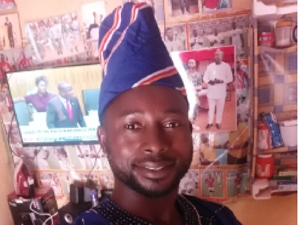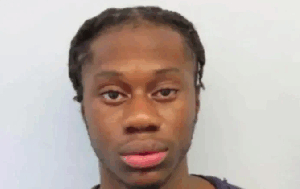During the heydays when Prophetess Maame Sarah's prayer camp drew in pilgrims from all walks of life, a settler community in Goka brought with them their unique culture and customs from Ghana's upper regions, the northern regions.
As a child then, I can hardly tell for now if they were Sissala, Kusasis, or whatever tribe I know of from up north. But we called them locally “Dakatefoɔ/Sremfoɔ/Ntafoɔ", which is to say they're Dagares.
After major festivities in Goka like the New Year Street Carnival and Opening of Prayer Camp by the Church of Pentecost, with the renowned prophetess and other apostles in the lead, the settler community organized a durbar to invite the indigenes to learn of their unique culture in costume, dancing, pomp, and pageantry. The regular attire was a smock, or batakari. Almost all the men wore the batakari and matched it with a hat.
It was the wearing of the hat that brought one of such well-planned durbars to a chaotic halt due to an identity crisis.
One of the guests caused the chaos. He has lived in Goka for barely six months. No one knows if he was on a pilgrimage to Maame Sarah's prayer camp or if he was accommodated in one of the plush homes in Goka that was hired by government workers.
But the story went around that the man was so rich and hailed from northern Ghana. That also turned out to be false; all were deceptive glitters.
The settlers were called Ntafoɔ, as in Twins, because they were considered to be their brothers' keepers, having the backs of others in good and bad times.
So when this man, who later proved to be a cunning dissembler and plane fraudster, introduced himself to the Sremfoɔ community, he was welcomed hospitably, and his home never lacked visitors who came with all sorts of useful gifts.
As expected and usual in Ghanaian culture, which accords the beautiful seat to the well-dressed and supposed wealthy fellow, this beguiling man was not just a special guest at that durbar but the overall chairman who would deliver welcome remarks.
It was not the language of the people that he could not fake; that was perfectly done fluently.
It was the wearing of the hat that brought problems to this unnamed man, who later took to his heels, escaping the mob's lynching by the hair.
“If indeed he is one of us, he should not have insulted us this way," the people chorused. Angst everywhere frowned faces in a combative mood.
When the moderator introduced the Chairman to the podium, I don't recall readily what name and appellations invited such thunderous clapping from the gathering to the high-profile person.
As soon as this important personality stood up to fix on his hat that, I think, was in his pocket before, then hell broke loose.
The rancour of rowdiness started from the front rows; they pointed to the man's hat, which shows disrespect and aggression. Hearing them unequivocally, the beleaguered guest readjusted the hat, and the crowd went mad again, saying, “You mean you are our king?” That was when I noticed that the hat stood straight, but for the first turn, I had not seen it.
Hurriedly, the shivering man kept turning the hat to all angles—left, right, back, and front—and in all, the people had a problem with it and were ready to unleash mayhem on him.
Today, I can't remember if the man escaped the settlers' anger through the Goa-Asuokor road, Goka-Jankufa road, Goka-Buni road, or the farm road to Tainso. All I know and remember is that there was a man whose identity crisis chased him out of Goka.
It's Ghana month now; take time to learn about your customs, culture, and traditions. Learn to prepare your local cuisine, wear your traditional attire, and speak your local dialect.
Sɛ wo wrɛfiri wokuromhene abɛn a woyera wɔ adwabɔase.
Mɛyɛ Bononii, m'asaase so aba bi ne bankye, bɔɔdeɛ, bayerɛ, mankani ne atɔsodeɛ nyinaa a prɛkɛsɛ ka ho.
Bonoman mu ne ntomayɔ hyɛaseɛ.
Abonofoɔ de y'adwene ne y'ahoɔden yɔ adwuma, enti ɛnyɛ nwanwa sɛ Nana Kwadwo Adinkrah Agyemang a ɔyɔ Adinkrah Ahyɛnsodeɛ (Adinkrah Symbols/Gye Nyame Symbols) ke yɛ Bononi.
Opinions of Tuesday, 5 March 2024
Columnist: Charles Yeboah (Sir Lord)















